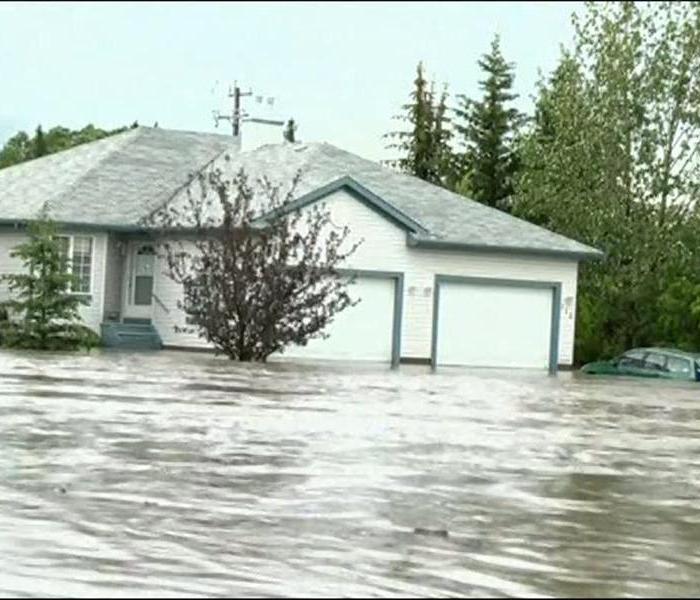Flood Awareness: Preparing Homes and Businesses For Spring Flooding Season
5/2/2014 (Permalink)
With spring flooding season here, the Property Casualty Insurers Association of America (PCI) is encouraging property and business owners, as well as renters, to prepare for flooding.
“There are many things property owners and renters can do to safeguard their homes, businesses and personal property before spring flooding hits,” said Chris Hackett, PCI’s director, personal lines policy. “Floods are the most common natural disaster in the nation and can be extremely devastating not only to property, but to a household’s finances if proper precautions are not taken. However, with some simple actions such as talking with your insurance agent or company about your insurance coverage options you can be better prepared if a flood occurs.”
First and foremost, PCI urges property owners and renters who do not already have flood insurance to purchase a policy from the National Flood Insurance Program (NFIP) as soon as possible. Basic homeowners and renters policies do not cover flooding. Consult an insurance agent or go to the NFIP website at www.floodsmart.com to find out about purchasing a policy. Understand that there is a 30-day wait upon purchasing a flood policy, so it is important to act before a flood is imminent.
Second, for those who already have flood coverage, policyholders should be sure to review their policies and what they cover, and discuss their coverage with their agents. It is important to keep the agent’s name and contact information in a safe and easily accessible place, and to take an inventory of all personal property. Photograph or videotape items for verification and keep the photos or video footage, as well as finance records or receipts of major purchases, in a safe place, such as a safety deposit box.
The NFIP’s website also recommends the following actions to prepare a home for possible flooding:
- Make sure if there is a sump pump that it is working and install a battery-operated backup.
- Install a water alarm in the basement.
- Clean gutters and downspouts to remove any debris.
- Anchor any fuel tanks.
- Raise electrical switches, sockets, circuit breakers, and wiring at least one foot above the home's projected flood elevation.
- If possible, place appliances such as a furnace, water heater, washer, and dryer on cement blocks at least one foot above the projected flood elevation.
Additionally, the NFIP’s website recommends developing a family emergency plan and a safety kit with basic components such as drinking water, canned food, first aid, blankets, a radio, and a flashlight. Components of emergency planning include posting emergency telephone numbers by the phone; teaching children how to dial 911; planning and practicing an evacuation route with family members; asking an out-of-state relative or friend to be an emergency contact; and preparing a safety plan for any family pets.
“With the proper preparation, property owners and renters can safeguard their families and property, reduce potential damages, and also speed up the recovery process,” Hackett said. “We ask all people who might face spring flooding to take these simple steps starting now, so they can be ready when the time comes.”
PCI is composed of more than 1,000 member companies, representing the broadest cross-section of insurers of any national trade association. PCI members write over $190 billion in annual premium, 40 percent of the nation’s property casualty insurance. Member companies write 46 percent of the U.S. automobile insurance market, 32 percent of the homeowners market, 38 percent of the commercial property and liability market, and 41 percent of the private workers compensation market.




 24/7 Emergency Service
24/7 Emergency Service
